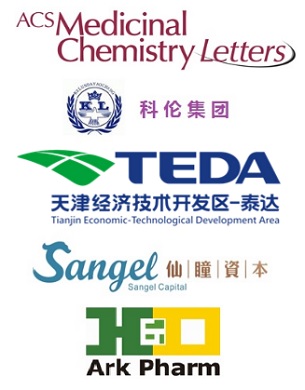国际新闻精选周二(2017年1月24日)
FierceMedicalDevices' 2016 Fierce 15
From video game-based therapies and a liquid biopsy for cancer to deep learning and bioelectronics, 2016’s Fierce 15 are redefining what it means to be a medical device. If they’re not making big bets on nascent technology, they’re reimagining an existing device or therapy to deliver better results.
A big trend this past year was upending how we use imaging in healthcare. Acutus Medical is trying to improve catheter ablation as a treatment for atrial fibrillation using an alternative to traditional voltage-based heart activity mapping. The procedure is only successful about half of the time and Acutus is aiming to bring that success rate up to 100% with its AcQMap system. RefleXion Medical is combining PET imaging and radiotherapy in one device so that, for the first time, radiotherapy may be image-guided in real time. This allows the century-old cancer treatment, which could only be used to treat one tumor at a time, to be deployed against metastatic cancer.【阅读全文】
Can pharma fix its bad rep without directly addressing price hikes? It's going to spend millions trying
The biopharma industry has a plan to save its reputation from the cries of “price-gouging” and “getting away with murder” that have been circulating among politicians and the public over the last couple of years. But that plan doesn't include frank talk about drug prices.
The new campaign, dubbed Go Boldly and launched Monday by lobby group PhRMA, is a two-pronged effort to “do a better job” telling the industry's story—and the researchers and scientists who are key characters, PhRMA president and CEO Stephen Ubl told reporters in a briefing Monday.【阅读全文】
Actelion’s PAH drug fails to hit target in PhIII study
Actelion has suffered a setback in its quest to expand the uses of Tracleer follow-up Opsumit, after a study assessing the drug in patients with pulmonary arterial hypertension (PAH) due to Eisenmenger Syndrome failed to meet its primary goal.
MAESTRO (MAcitentan in Eisenmenger Syndrome To RestOre exercise capacity) was a Phase III multi-center, double-blind, randomised, placebo-controlled, parallel-group study to evaluate the effects of Opsumit (macitentan) on exercise capacity in patients with the condition.【阅读全文】
Sunesis Pharmaceuticals Announces Clinical and Regulatory Updates to SNS-062 and Vosaroxin Programs
Sunesis Pharmaceuticals, Inc. (Nasdaq:SNSS) today announced clinical and regulatory updates to its two lead programs, SNS-062, a second-generation reversible and non-covalent BTK inhibitor, and vosaroxin, an anti-cancer quinolone derivative currently under review for marketing authorization as a treatment for relapsed/refractory acute myeloid leukemia (AML) in Europe.
For SNS-062, the company announced that its Investigational New Drug (IND) application with the U.S. Food and Drug Administration (FDA) is now active, supporting the initiation of a Phase 1B/2 study to assess the candidate's safety and efficacy in patients with advanced B-cell malignancies after prior ibrutinib exposure, including in patients with C481S mutations.【阅读全文】
BMS, Ono, Merck settle Keytruda patent suit
Merck & Co has agreed to pay Bristol-Myers Squibb and Ono Pharmaceutical Co $625 million plus royalties to lay to rest a global patent battle relating to cancer immunotherapy Keytruda.
In a lawsuit against Merck, BMS and Ono, which launched the first PD-1 antibody Opdivo (nivolmab) back in July 2014, argued that fellow PD-1 antibody Keytruda (pembrolizumab) infringed on their intellectual property.
Under the settlement agreed, Merck will pay royalties on global Keytruda sales of 6.5 percent for 2017 to 2023 and 2.5 percent between 2024 and 2026, which will be split 75/25 between BMS and Ono.【阅读全文】
Boston Biomedical Presents Clinical Data on First-in-Class Cancer Stemness Inhibitor Napabucasin at 2017 ASCO GI Symposium
Boston Biomedical, an industry leader in the development of novel compounds designed to target cancer stemness pathways, today presented data from two clinical studies for its lead investigational compound, napabucasin, at the 2017 American Society of Clinical Oncology (ASCO) Gastrointestinal Cancers Symposium in San Francisco.
In a Phase Ib/II study of napabucasin – an orally administered investigational agent designed to inhibit cancer stemness pathways by targeting STAT3 – colorectal cancer (CRC) patients who were FOLFIRI-naïve and those previously treated with FOLFIRI showed signs of anti-cancer activity when napabucasin was administered in combination with FOLFIRI with and without bevacizumab. Additionally, these findings demonstrated synergistic activity of napabucasin plus FOLFIRI with and without bevacizumab in patients previously treated with FOLFIRI, regardless of p-STAT3 status. Further, these data suggest napabucasin may re-sensitize chemorefractory CRC patients, including those who were previously unresponsive to FOLFIRI-based chemotherapy treatment, to treatment with FOLFIRI with and without bevacizumab.【阅读全文】
Roche challenges Keytruda’s colorectal cancer pole position
Though Merck & Co remains in the lead in developing checkpoint inhibitors for colorectal cancer, judging by discussions at the Asco-GI meeting on Saturday oncologists seem more excited by Roche’s strategy of combining therapies with Tecentriq.
This is because Roche could ultimately end up targeting the larger group of colorectal cancer patients who do not have a DNA mismatch repair (MMR)-deficient/microsatellite instability (MSI)-high phenotype. Merck will have to make the most of its opportunity to be first to market with Keytruda in a subgroup of patients thought to be highly sensitive to anti-PD-1/PD-L1 MAbs (see table below).【阅读全文】
Bristol looks to exploit Opdivo’s liver cancer advantage
Bristol-Myers Squibb might have seen its PD-1 inhibitor Opdivo comprehensively outmanoeuvred by Merck & Co’s Keytruda in lung cancer, but the opposite could be the case in hepatocellular carcinoma.
Updated data from the dose-expansion stage of Bristol’s large Checkmate-040 phase I/II study reported at Asco-GI suggest that the drug confers a durable response in around 20% of hepatocellular patients – irrespective of whether it is given first or second line (see tables below). With a near-term phase III study readout Bristol looks to have first-mover advantage over its arch-rival.【阅读全文】
Aptose Prioritizes Development of CG’806 First-in Class FLT3/BTK Inhibitor
Aptose Biosciences Inc. (NASDAQ:APTO) (TSX:APS), a clinical-stage company developing new therapeutics and molecular diagnostics that target the underlying mechanisms of cancer, today announced it will prioritize its resources toward the development of CG’806, an oral preclinical compound being developed for patients with FLT3-driven acute myeloid leukemia (AML) and certain BTK-driven B-cell malignancies. Aptose will temporarily delay clinical activities with APTO-253, a phase 1 stage compound for AML, in order to elucidate the cause of recent manufacturing setbacks related to the intravenous formulation of APTO-253, with the intention of restoring the molecule to a state supporting clinical development and partnering.【阅读全文】
Deep in talks with J&J, Actelion’s flagship drug cruises past a pivotal trial failure
Deep into negotiations with J&J over a prospective buyout, Actelion (SIX: ATLN) reported today that its up-and-coming flagship therapy Opsumit flunked a pivotal test for treating pulmonary arterial hypertension due to Eisenmenger Syndrome. And while the trial failure could put a crimp in Actelion’s — as well as J&J’s — plan to continue to rapidly boost sales of Opsumit as Tracleer loses ground to generic competition, analysts seemed ready to write it off and move on.【阅读全文】
Sinking Marinus gets a lifeline with new ganaxolone data
Micro cap Marinus Pharmaceuticals was up 28% premarket this morning on positive, early data from its midstage test of ganaxolone in a rare condition that causes severe seizures.
This has buoyed the company that was trading just over $1 at end of play last week (with a market cap of just $22 million), coming off the back of a tough second half of 2016 when in the summer, it pulled the plug on the ganaxolone testing program in adult focal onset seizures.【阅读全文】
美中药源原创文章,转载注明出处并添加超链接,商业用途需经书面授权。★更多深度解析访问《美中药源》~
★ 请关注《美中药源》微信公众号 ★



















 微信号:美中药源
微信号:美中药源